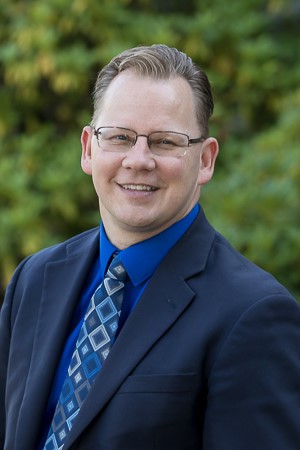OLYMPIA, Wash., September 28, 2023—Today, State Superintendent Chris Reykdal announces his 2024 supplemental budget priorities. Reykdal’s office will submit the proposals to Governor Inslee and the Office of Financial Management, and then the Legislature will consider the requests during the 2024 Legislative Session.
As the school year gets underway across Washington, State Superintendent Reykdal is looking ahead to the supports our students, educators, and families will need by next school year.
Following regular and ongoing conversations with parents and families, students, educators and school staff, community leaders, and other education partners across the state, Reykdal announced his budget proposals for the 2024 Legislative Session today.

As this is a supplemental budget year intended for small changes, several of the proposals aim to make continued progress in areas with partial investments, while others introduce priorities that are too time sensitive to wait for the biennial budget in 2025. One priority area for Reykdal is air quality in schools.
“Many of our school buildings weren’t built with HVAC systems or central air conditioning, which creates barriers to learning as our seasons get warmer and as smoke from wildfires becomes more prevalent,” Reykdal said. “Schools are being forced to cancel school days because of air quality concerns with increasing regularity, and we are seeing these problems impact small, rural schools in Eastern Washington the most.”
Inadequate air quality impacts students’ health and learning. According to the U.S. Environmental Protection Agency, climate-driven increases in temperature are projected to increase asthma in children by 4–11%, and decrease academic achievement per child by 4–7% per year.
Reykdal’s proposal would provide grants to school districts for HVAC installations, enhancements, and repairs, as well as a substantial investment in the School Construction Assistance Program, which is the state’s matching program for school construction.
Another priority area for Reykdal is establishing a mandatory minimum living wage for all of Washington’s paraeducators. Paraeducators make up 1 in 5 employees in a school district, and they often provide direct instructional support to students, working in partnership with certificated teachers to ensure all students’ needs are met.
“Paraeducators are the backbone of our schools, and their low pay doesn’t reflect how important they are to students,” said Larry Delaney, President of the Washington Education Association. “Paraeducators need professional wages that honor their work.”
Despite the critical role they play in the classroom, most paraeducators do not earn a living wage. In a recent study by the American Institutes for Research (AIR), researchers found that the average paraeducator in Washington earned a salary of less than $30,000 per year.
“This proposed wage increase would be life-changing for so many paraeducators,” said Charlotte Schindler, paraeducator and President of the Public School Employees of Washington. “Currently, paraeducators across the state care for students every day, yet they often are not paid enough to care for themselves or their families. The poverty wages that paraeducators make do not accurately reflect the value of the work they provide in our public schools.”

Inadequate pay leads to high rates of turnover in paraeducator positions, creating instability for students, families, and school staff alike. AIR found that, in the 2021–22 school year, the turnover rate for Washington’s paraeducators was 23%, much higher than the average of 8–11% per year a decade prior. In 2022, 48% of Washington’s paraeducators had fewer than 5 years of experience, an increase of 20 percentage points since 2012.
“Our Legislature has made monumental progress in competitive salaries for our certificated teachers,” Reykdal said. “Our work can’t end there. Ask anyone in a school, and they will tell you what a critical role their paraeducators hold in their school community. As a state, we cannot continue to lose talented staff because the salary isn’t competitive.”
In Washington, the average paraeducator makes $22–27 an hour, with those at the lower end typically living in areas with lower costs of living, and those at the higher end living in areas with higher costs of living. Nearly all paraeducators work throughout the school year, averaging roughly 1,200 hours worked––around 800 hours fewer than typical full-time employment.
Under Reykdal’s proposal, the Legislature would fund an additional $7 per hour, bringing the hourly wage up to $29–36 depending on cost of living in the area. With this increase, paraeducators could expect to earn $9,000 to $11,000 more per year.
“Paraeducators often support the most vulnerable students,” Schindler continued. “They are instructors, they are caretakers, they are highly qualified, and they are essential to ensuring every student receives a quality education. This wage increase would be a historic investment in our schools, our students, and our future.”
In addition to these investments in clean air and competitive wages for paraeducators, Reykdal continues to advocate for funding that would ensure all Washington students have access to nutritious meals at school each day at no out-of-pocket costs to students or their families. With this continued advocacy, Reykdal hopes that, at a minimum, the Legislature will fund meals for all students at all elementary schools in the 2024 Legislative Session.
Reykdal’s budget proposals also aim to close opportunity gaps in multiple areas, including continued progress toward fully funding special education services, as well as continued investment in the evidence-based Inclusionary Practices Project. In further supports for students with disabilities, Reykdal’s budget provides for an innovative residency model to recruit, prepare, and retain special education teachers, an area where our state and nation typically experience shortages.
In addition, recognizing that many students face significant barriers to engagement in school, Reykdal’s budget invests in systemic, proven systems to support attendance, prevent disengagement, and eliminate barriers to high school completion. These programs complement Reykdal’s advocacy for continued, permanent investments in regional mental and behavioral health supports, an initiative that is currently funded through the Office of Superintendent of Public Instruction’s temporary emergency relief funds.
Finally, Reykdal’s budget proposes expanded state investments in community-based initiatives that are proven to increase postsecondary enrollment and success, particularly for students of color, students experiencing poverty, and those who are first generation college students.
“We have made an unbelievable amount of progress in supporting our students, families, and educators in recent years,” Reykdal said. “We have seen Washingtonians come together to advocate for meals, special education, competitive salaries, and more. Even in a supplemental budget year, we can continue to make progress in alignment with our values as a state.”
SOURCE: Office of Public Instruction









One Response
Thank you so much for advocating for paraeducators Chris Reykdal! This means so much as paraeducators are underpaid and undervalued. I was happy and impressed to learn Mr. Reykdal is trying to get this bill passed. Here is an email I recently sent to try to advocate for a living wage for paraeducators.
Subject
Disparity in Paraeducator Wages
Dear Union Representatives, Superintendent of Public Schools Chris Reykdal, Superintendent of Oak Harbor Schools Michelle Kuss-Cybula, Oak Harbor School District Administration, Oak Harbor School Board Members, and fellow paraeducators,
I would like to introduce myself. My name is Andrea Knoll and I have been a paraeducator for the Oak Harbor school district for ten years. My four children have all gone through the Oak Harbor school district system. Prior to becoming a paraeducator, I held many positions volunteering in the PTA, as well as volunteering in various classrooms at Oak Harbor Elementary for twelve years before going to work for the district.
First of all, I would like to thank our union representatives for your perseverance in the passing of our new contract. I truly appreciate all of your hard work.
However, for years I have noticed a large gap between paraeducators’ wages and other classified employees’ wages. I am struggling to understand how this disparity has come to be. I am only now having the courage to stand up for the valuable and important work that we, as paraeducators, do everyday. I want to be sure to convey, in doing this, that I mean no disrespect to the work of groundskeepers, custodians, warehouse workers, and bus drivers. They have very important jobs and deserve the pay they receive. Nevertheless, paraeducators are critical to the safety and education of our students and deserve to be paid at least as much as these positions.
As paraeducators, we are teaching special education students, Title One and Learning Assistance Program (LAP) students in reading and math small groups, helping them succeed in their education. We are responsible for Dynamic Indicators of Basic Early Literacy Skills (DIBELS) testing including progress monitoring our small group students monthly as well as DIBELS testing all students at the beginning, middle, and end of the year. We also push into the classrooms to provide necessary Individualized Education Program (IEP) minutes for many students. Paraeducators supervise hundreds of children at recess, in the lunchroom, and on the walking path, keeping them safe, helping with problem solving, dealing with social emotional issues and extreme behaviors. Behavior paraeducators, as well as choices and life skill paraeducators are often kicked, hit, or bit while trying to de-escalate students. In addition, we supervise children at bussing, parent pick-up and drop-off areas ensuring students get home correctly and safely. All of these jobs help our school run safely and smoothly, as well as contribute to our students’ education. Paraeducators are also required by the state to obtain many hours of ongoing education through the Fundamental Course of Study program. Please consider all of this as I make you aware of the following classified wage disparities.
In our district, custodians start at $4.62 more per hour than paraeducators, bus drivers start at $6.54 more than paraeducators, warehouse workers start at $6.24 more than paraeducators, and groundskeepers start at $10.80 more than paraeducators. This imbalance only increases after working twelve years in the district. What really hit home for me this year was that my 24 year old nephew started as a warehouse worker for the district making $2.67 more an hour than I make currently after working as a paraeducator for ten years. Even if I were to work as a paraeducator for twenty five years, I would top out at less than what bus drivers, warehouse workers, and groundskeepers make in their first year. Again, I am not saying that these other positions should make less money, but instead, considering the importance of the contributions of paraeducators to the safety and education of our students, we should be making at least as much as bus drivers, custodians, warehouse workers, and groundskeepers. This disparity is shocking and I am dismayed at how it has come to be. After reading this letter, I hope you are able to understand my perspective on this issue. I have included an attachment of the 2023-2024 schedule A contract ratification from the agenda of the October 9th, 2023 school board meeting to support this data.
For these reasons, please advocate for closing the gap between paraeducators’ wages and bus drivers’, warehouse workers’, custodians’, and groundskeepers’ wages.This inequity has gone on way too long, making our important work seem devalued. My colleagues fully support these feelings of imbalance and if made aware of these numbers, other paraeducators from the district and around the state would as well. Paraeducators are critical to the education and safety of our students and we deserve to be paid a respectable, liveable, and equitable wage. I know firsthand of someone who would have been a phenomenal paraeducator, but chose to be a custodian to make more money needed to provide for their family. To continue to underpay this position, you risk losing the good people you already have that make the school run smoothly and you will have difficulty attracting new talent in an already difficult labor market. Thank you for your time and consideration.
Sincerely, Andrea Knoll
Paraeducator at Oak Harbor Elementary School, Oak Harbor, WA